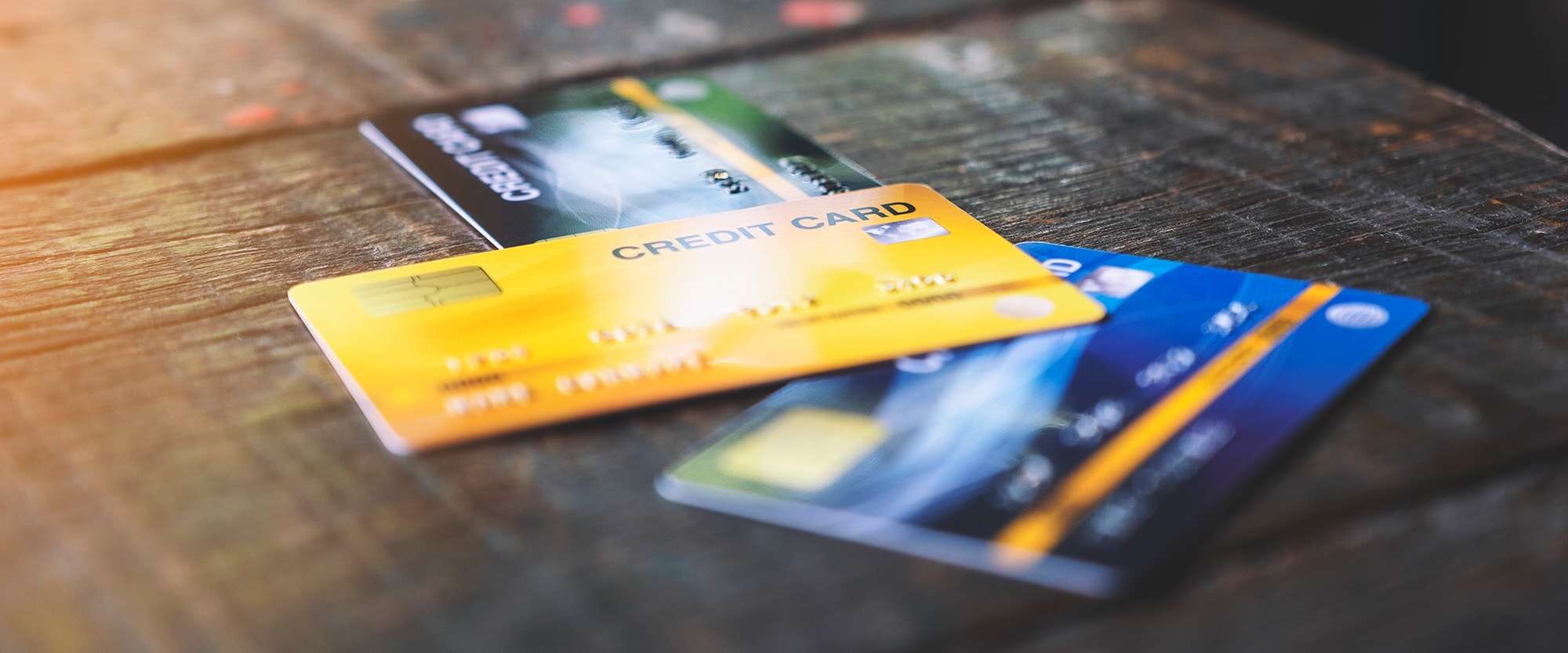Si se encuentra en el lado receptor de una demanda, pueden surgir cualquier cantidad de emociones. Choque. Miedo. Pánico. Angustia. Enojo. Entumecimiento. Desesperación. Quizás alguna combinación de todo esto. Independientemente de lo que sienta, la única pregunta que seguramente se hará mientras sostiene ese papel acusatorio en la mano es la siguiente: ¿Qué hago ahora?
Los acreedores originales y los compradores de deuda de terceros dependen de que los demandados no hagan nada. Muy a menudo, estos acreedores no tienen la documentación necesaria para ganar su caso o incluso demostrar que, para empezar, tienen derecho a demandarlo. Cuentan con que usted ignore sus reclamos o acepte los términos que exijan. Si los cobradores de deudas lo han demandado, un abogado especializado en deudas de tarjetas de crédito puede reducir su responsabilidad en miles de dólares.
Aproximadamente 70% de demandas terminan en una sentencia en rebeldía contra los prestatarios porque no responden a la demanda. No responder hace que sea mucho más difícil desafiar a los acreedores.
Según un informe reciente del LendingTree.com, el saldo de las tarjetas de crédito en el segundo trimestre de 2023 ascendió a $1,031 billones, la mayor cantidad de deuda desde que la Reserva Federal de Nueva York comenzó a rastrear la deuda de los consumidores en 1999. Los consumidores de Pensilvania tienen una deuda de tarjetas de crédito promedio de $6,620 al final de 2022.
El enfoque centrado en el cliente de Bill enfatiza el hecho de que detrás del expediente de cada cliente hay un ser humano que puede estar viviendo un momento difícil. Nuestra oficina maneja muchos tipos de casos en todo Pensilvania, obteniendo millones para nuestros clientes en reducción de deuda.
Las compañías de tarjetas de crédito pueden demandarlo por saldos pendientes o, si la deuda se vendió, los cobradores de deudas externos pueden demandarlo.
La ley de Pensilvania exige que los acreedores originales demuestren sus reclamos ofreciendo documentación exhaustiva que demuestre los términos exactos del acuerdo entre usted y ellos, cualquier cambio en esos términos, cuándo existió la cuenta y cómo calcularon la cantidad exacta que afirman que usted le debe. Si un tercero comprador de deuda lo demanda, Deben probar todo lo que hace un acreedor original y demostrar que tienen el derecho legal de demandarlo.. A menudo carecen de esta documentación y no pueden defender su caso.
Nadie quiere ser demandado por deudas de tarjetas de crédito, pero sucede más de lo que cree. La probabilidad de ser demandado por deudas de tarjetas de crédito depende de algunos factores, incluida su situación financiera, las políticas del acreedor y las leyes locales de cobro de deudas. Los acreedores suelen seguir una serie de pasos antes de recurrir a acciones legales para recuperar las deudas pendientes, tales como:
Pagos atrasados. Inicialmente, si no realiza un pago o realiza un pago atrasado, el acreedor puede cobrarle cargos por mora e intereses, pero es posible que no emprenda acciones legales de inmediato.
Esfuerzos de cobro de deudas. Después de un cierto período de morosidad, los acreedores pueden participar en esfuerzos de cobro de deudas, lo que podría implicar comunicarse con usted a través de cartas, llamadas telefónicas o agencias de cobro de terceros. Estos esfuerzos están destinados a fomentar el pago.
Cancelación. Si continúa incumpliendo los pagos, el acreedor eventualmente podrá "candar" la deuda. Esto no significa que usted esté libre de responsabilidad, pero indica que el acreedor considera que es poco probable que la deuda se pague.
Accion legal. Los acreedores o compradores de deuda (empresas que compran deudas morosas) pueden decidir emprender acciones legales para recuperar la deuda. Esto podría implicar presentar una demanda en su contra ante el tribunal.
La probabilidad de ser demandado por deuda de tarjeta de crédito aumenta si tiene un saldo pendiente importante, múltiples pagos atrasados o si el acreedor cree que emprender acciones legales es una opción viable. Sin embargo, muchos acreedores prefieren negociar planes de pago o liquidar la deuda fuera de los tribunales para evitar costos y otras incertidumbres.
Si tiene dificultades para pagar la deuda de su tarjeta de crédito, debe comunicarse con sus acreedores, explorar opciones de alivio de la deuda y considerar buscar asesoramiento de un asesor financiero o un abogado acreditado en deudas de tarjetas de crédito. Es importante ser proactivo al abordar sus desafíos financieros para minimizar el riesgo de acciones legales.

Un demandante no tiene que probar todo su caso cuando presenta una demanda, pero las Reglas de Procedimiento Civil de Pensilvania y la jurisprudencia de Pensilvania han establecido ciertos requisitos que un acreedor debe cumplir antes de que una demanda se considere lo suficientemente válida como para seguir adelante. Sin embargo, la aplicación de estas normas no es automática.
El demandado debe afirmar (y probar) que la demanda del acreedor es defectuosa. Debido a que los acreedores nunca anticipan que el demandado responderá, son vulnerables cuando lo hacen. Las quejas de los acreedores son casi siempre documentos esqueléticos y raídos, que contienen tal vez un único extracto mensual y tal vez un acuerdo modelo de titular de tarjeta que obtuvieron de los servidores de la empresa. O no. He visto quejas que no tenían ni una sola sílaba de documentación de respaldo.
La ley de Pensilvania desaprueba esto, y los tribunales a menudo desestiman las quejas malas y exigen que el demandante reescriba la demanda (llamada “denuncia enmendada”) que cumpla con la ley. Si no pueden (o no quieren), el demandado puede pasar a la ofensiva.
Si ha sido demandado por cobradores de deudas, ya sea un tercero comprador de deudas o un acreedor original, por favor, llámame. No cobro honorarios por las consultas iniciales. Lo peor que puedes hacer ahora es no hacer nada. Eso es lo que quieren. Tienes defensas y es hora de usarlas. Lea nuestro artículo sobre Qué hacer si una compañía de tarjetas de crédito lo demanda.

Desafortunadamente, es posible acudir a los tribunales por deudas de tarjetas de crédito. Si tiene una deuda pendiente de tarjeta de crédito y el acreedor o cobrador decide emprender acciones legales para recuperar la deuda, pueden presentar una demanda en su contra en los tribunales. Este proceso puede dar lugar a una sentencia judicial en su contra por el monto adeudado, más los honorarios, intereses y costos legales adicionales.
A continuación se ofrece una descripción general de cómo puede desarrollarse el proceso:
Presentación de demanda. El acreedor o cobrador de deudas presentará una demanda contra usted en el tribunal correspondiente. Por lo general, le entregarán una citación legal y una queja, informándole sobre la demanda y la deuda que buscan recuperar.
Respuesta. Una vez que reciba la citación y la denuncia, tendrá un tiempo limitado (a menudo entre 20 y 30 días, según las leyes locales) para responder. Puedes responder admitiendo la deuda, negándola o solicitando información adicional.
Procedimientos judiciales. Si niega la deuda o impugna la demanda, el caso puede pasar a una audiencia judicial. Ambas partes presentarán sus argumentos, pruebas y testigos, en su caso.
Juicio. Si el tribunal falla a favor del acreedor o cobrador de deudas, se puede dictar sentencia en su contra. Este fallo confirma el monto que usted debe, incluidos los honorarios e intereses legales. Dependiendo de las leyes locales, el acreedor puede tener el derecho legal de aplicar varios métodos de cobro para recuperar la deuda, como embargo de salario, incautación de cuentas bancarias o gravámenes sobre la propiedad.
Es importante tener en cuenta que las leyes y los procedimientos pueden variar según su situación. Si se enfrenta a una demanda por deuda de tarjeta de crédito, es fundamental que busque asesoramiento legal de un abogado especializado en deudas de tarjetas de crédito. Pueden ayudarlo a comprender sus derechos, posibles defensas y opciones para resolver la deuda, incluida la negociación de un acuerdo o un plan de pago fuera de los tribunales.

%
$ METRO
La mayoría de las veces, no lo pueden arrestar únicamente por deudas de tarjetas de crédito en los Estados Unidos. Las prisiones para deudores fueron abolidas en Estados Unidos hace mucho tiempo, y estar endeudado en sí no es un delito penal. Sin embargo, existen algunas situaciones en las que una acción legal relacionada con la deuda podría conducir potencialmente a su arresto:
Incumplimiento de órdenes judiciales. Si un tribunal ha emitido una orden relacionada con su deuda, como una citación para comparecer ante el tribunal o una orden para proporcionar información financiera, el incumplimiento de estas órdenes judiciales podría resultar en una orden de arresto por desacato al tribunal.
Fraude o actividad delictiva relacionada con la deuda. Participar en actividades fraudulentas relacionadas con deudas de tarjetas de crédito, como robo de identidad o fraude con tarjetas de crédito, puede dar lugar a cargos penales y posible arresto.
Violación de Leyes Específicas. Algunos estados tienen leyes específicas relacionadas con la deuda y, en casos excepcionales, el incumplimiento de estas leyes podría tener consecuencias legales, incluido el arresto.
Afortunadamente, el proceso típico para abordar la deuda de tarjetas de crédito implica acciones civiles, como demandas y sentencias, en lugar de cargos penales. Si tiene dificultades con la deuda de su tarjeta de crédito, es esencial que se comunique con sus acreedores, busque asesoramiento financiero y explore opciones para el alivio de la deuda o planes de pago. Si tiene dudas sobre sus derechos legales o posibles consecuencias, hable hoy de forma gratuita con un abogado especializado en deudas de tarjetas de crédito.
Es muy probable que el demandante que lo demanda no sea nadie con quien usted haya hecho negocios. En cambio, es probable que sean compradores de deuda de terceros. Estas empresas compran cuentas de deuda de acreedores originales, a menudo en grandes cantidades (es decir, cientos o miles de archivos en una transacción), normalmente por unos centavos de dólar. Luego se dan la vuelta e intentan cobrar el monto total de la cuenta, iniciando cientos de demandas en el proceso. Es una matemática simple: compre una deuda por $5.00, cobre $1,000.00 y ¡obtendrá $995.00!
Aquí está la cuestión: el simple hecho es que un demandante tiene la carga de la prueba al establecer cada elemento de su reclamo contra un demandado. Entre los elementos más rudimentarios de cualquier reclamo que se presente está que el demandante tiene el derecho legal de hacerlo. Por lo tanto, un demandante debe demostrar que usted le debe dinero directamente o que compró su cuenta (y, por lo tanto, el derecho a demandar) de esa empresa.
¿Por qué esto importa? Porque los compradores de deuda de terceros a menudo no tienen la documentación necesaria para demostrar que tienen derecho a demandarlo. Por lo tanto, desde el principio, un demandado puede asestar un golpe, a menudo fatal, a las reclamaciones del demandante, siempre que el abogado del demandado sepa cómo asestarlo. Ahí es donde entro yo.
Para los acreedores originales, el enfoque es un poco diferente, pero el demandado todavía tiene defensas sólidas y efectivas contra una demanda del acreedor original. Específicamente, si bien un acreedor original puede demostrar que tiene el derecho legal de iniciar la demanda (aunque los bancos se compran entre sí con frecuencia, esto no es un hecho), aún debe demostrar otro hecho básico: que usted debe la cantidad exacta. están reclamando que usted debe.
¿Cómo lo hacen? De nuevo, documentación. ¿Lo tienen? Nuevamente, probablemente no, al menos no en la denuncia inicial que presentaron. Recuerde que los bufetes de abogados de los acreedores, ya sea que representen a terceros compradores de deuda o a acreedores originales, operan según el modelo de negocio de “sentencia en rebeldía”.
La complejidad de una demanda por deuda de tarjeta de crédito puede variar según varios factores, incluidas las circunstancias específicas del caso, las leyes de su jurisdicción y las acciones tomadas por ambas partes involucradas. Esto incluye:
Monto de la deuda. La complejidad a menudo depende del monto de la deuda en cuestión. Las deudas más pequeñas podrían manejarse de manera más informal o ni siquiera llegar a la demanda. Las deudas más importantes podrían implicar procedimientos legales más extensos.
Defensas y Controversias. Si cree que la deuda no es válida, tiene una defensa o disputa el monto reclamado, el caso podría volverse más complejo. Esto podría implicar reunir pruebas, presentar argumentos legales y, potencialmente, pasar por un juicio.
Procedimientos legales. Las demandas por deudas de tarjetas de crédito generalmente implican procedimientos legales, como presentar documentos judiciales, responder a mociones, asistir a audiencias y, potencialmente, pasar por un juicio. Navegar por estos procedimientos puede ser complejo, especialmente si no está familiarizado con los procesos legales.
Diferencias jurisdiccionales. Las leyes y los procedimientos pueden variar según la jurisdicción. Comprender y cumplir las reglas y requisitos específicos de su área puede aumentar la complejidad.
Representación. Tener representación legal puede influir en la complejidad de la demanda. Si está representado por un abogado, él puede manejar las complejidades legales en su nombre. Si se representa a sí mismo (pro se), debe gestionar todos los aspectos del caso de forma independiente.
Negociaciones y Acuerdos. A veces, las demandas pueden resolverse mediante negociaciones o acuerdos fuera de los tribunales. La complejidad de las negociaciones puede depender de la voluntad de ambas partes de encontrar una solución.
Duración. La duración de la demanda también puede afectar su complejidad. Si el caso se prolonga debido a diversos factores, puede volverse más complejo y difícil de manejar.
Es importante tener en cuenta que, si bien algunas demandas por deudas de tarjetas de crédito pueden ser relativamente sencillas, otras pueden volverse bastante complejas, especialmente si surgen disputas legales, se impugnan pruebas o surgen otras complicaciones. Suponga que se enfrenta a una demanda por tarjeta de crédito. En ese caso, buscar asesoramiento legal de un abogado especializado en deudas de tarjetas de crédito con experiencia en deudas y protección al consumidor puede ayudarlo a comprender las complejidades específicas de su caso y navegar el proceso legal de manera efectiva.
Si tiene problemas con una deuda de tarjeta de crédito o lo han demandado por cobro de deudas, no está solo y no necesita enfrentarse solo a su compañía de tarjeta de crédito o a un cobrador de deudas externo. En nuestra práctica, sabemos que hay un ser humano detrás de cada caso de deuda de tarjeta de crédito y lo superaremos juntos.
Comuníquese con los abogados con experiencia en deudas de tarjetas de crédito de las oficinas legales de William P. Harrington, Jr. para una consulta gratuita y sin compromiso enviando el siguiente formulario o llamando a nuestra oficina al 484-459-5075.

Manejamos casos en todo Pensilvania y Nueva Jersey, si necesita un abogado con experiencia, contáctenos y cuéntenos sobre su caso.
